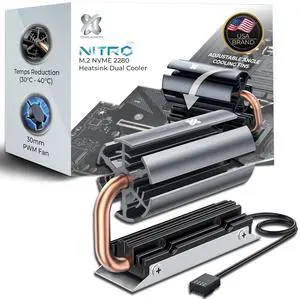
- Model #: TMHSFM9NITROFLEX
- MXN$528.95 –
- MXN$3,492.13 Shipping
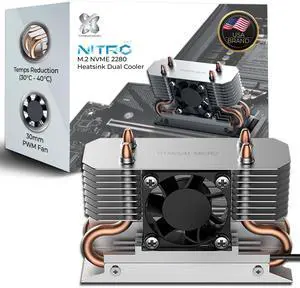
- Model #: TMHSFM3NITROPRO
- MXN$532.43 –
- MXN$3,512.83 Shipping
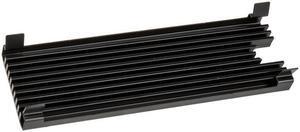
- MXN$452.39 –
- More options from MXN$359.18 - MXN$501.79
- MXN$596.11 Shipping
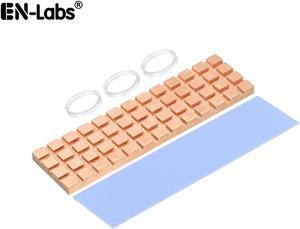
- Model #: 11-001-294
- MXN$257.52 –
- Free Shipping
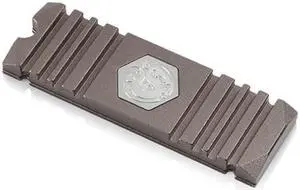
- MXN$407.15 –
- MXN$578.68 Shipping
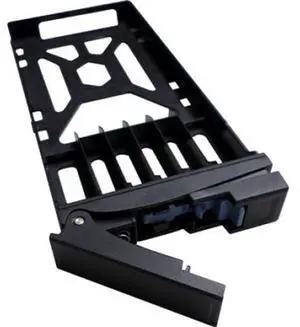
- Brand: Qnap
- Model #:
- MXN$546.07 –
- MXN$636.08 Shipping
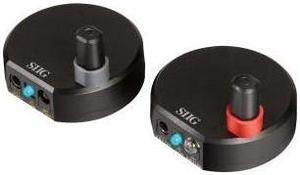
- Model #: CE-RC0014-S1
- MXN$1,613.99 –
- More options from MXN$1,098.58 - MXN$3,388.35
- MXN$613.30 Shipping
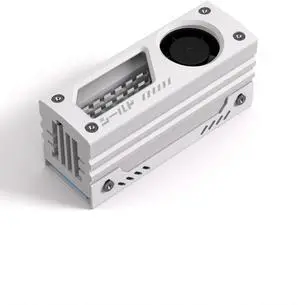
- Model #: 388354575147
- MXN$1,303.76 –
- Free Shipping
Overheated hard drives are prone to mechanical failure and, when running hot, they have to work harder and are noisier. Hard drive coolers reduce the operating temperature of the hard drive, and improve airflow within the case. This means quieter operation and fewer boot errors. It also reduces the likelihood of a total drive failure. Prolong the life of your hard disc drive (HDD) with an upgraded hard drive cooling system, especially if you have added additional components. Although fan systems are the most common, a liquid cooling system can provide you with an ice-cool PC.
Fans and Heatsinks Offer Simple Cooling Systems
The most common cooling systems consist of CPU fans and a heatsink. The hard drive incorporates a thermal metal heatsink, which absorbs heat and moves it away from the HDD. The fans draw cool air in at the front of the computer and dissipate it around the case. This type of hard drive cooling system is simple, making it inexpensive and easy to install. In most PCs, this type of cooling system should prove more than adequate. You may need additional cooling if you have multiple, upgraded components, and your bays are full.
Liquid Hard Drive Cooling Systems Provide Advanced Protection
In most layouts, a heatsink and hard disk cooling fan are sufficient. A busy and fully loaded case might require additional cooling, which you can achieve with additional fans. Alternatively, a liquid HDD cooler uses radiators, pumps and pipes that push cool liquid around the components. Liquid cooling allows for precision temperature control. If you know that your primary drive runs hot and ambient cooling isn't doing the job, you can run cold pipes around it. Liquid hard drive coolers operate silently. They enable you to achieve consistently lower temperatures than fans, and manufacturers tend to use bright coolants and LED lights to offer greater aesthetic appeal. Liquid systems are popular with home builders looking for effective DIY cooling measures. Your case will be cool, silent and look ultra-modern.
Silent Hard Drive Coolers for Any Situation
When buying an HDD cooler, there are a number of factors you should consider. Most cooling systems offer a noise rating, measured in decibels (dBA) and ranging from 10 to 30 dBA. If you use your computer at night, or you enjoy an immersive gaming experience uninterrupted by fan noises, buy from the lower end of the scale, or opt for CPU liquid cooling. Measured in Revolutions Per Minute (RPM), fan speed determines how much air a particular model can move. Bigger fans with operating speeds of up to 5,000 RPM can cool multiple hard drives, CPUs, and graphics cards. More important is the airflow rating, measured in Cubic Feet per Minute (CFM). A high CFM indicates that a hard disk cooling fan is capable of moving more air in a shorter period of time, so it is capable of cooling a system quicker and more efficiently.
